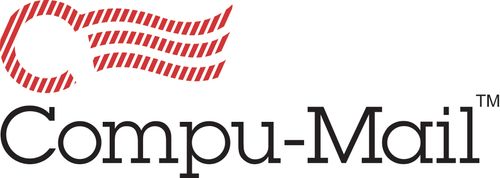I’m at a family reunion, catching up with a few cousins I hadn’t seen in a while. We’ve covered new couples, babies and houses, so now talk turns to work.
I start: “I work at Compu-Mail; it’s a data-driven marketing solutions provider. Basically we use data to find people who are most likely to buy what a company is selling, and then we target mail pieces, email and other direct marketing messages to that person.” (I really try to dumb it down when outside of the marketing bubble.)
I’m answered with polite smiles over glazed looks.I go on to say how… “It’s actually pretty cool – we have the production plant right in our building and we see an idea go from a design on a computer screen to a compelling mail piece ready to ship.”
Cousin Joey pipes up: “So you send junk mail pretty much.”“Well no – we are highly targeted. We only send messages to the people that are most likely going to find the messages useful.”“So you’re one of those marketers who mines people’s personal data.”
Before I know it, the conversation switches to “creepy” marketing and the way consumers are “coerced” into buying things they don’t need these days.
If you’re a database marketer like me then surely you’ve experienced this same conversation before. And if you’re like me, you too really do believe our Big Data tactics have loads of benefits for consumers!
So how can we respond to friends and family who don’t get what we do, and just think data-driven marketing is creepy?
Here are some advantages to state:
- Data-driven marketing saves the consumer time: Ask your Cousin Joey – have you ever clicked on “Your Recently Browsed Items” or “Suggestions Based on Previous Purchases” on an ecommerce site? Ask him why. Most likely it saved him search time. He might even decide he LOVES Big Data when he realizes it makes it possible for him to meet his next fling on Tinder or find long-lost friends on Facebook.
- Data-driven marketing saves the consumer money: Targeted ads allow websites to provide free content for consumers, and according to the Data-Driven Marketing Institute, “Investments in data increase price transparency causing productivity to be passed on to the consumers, generating value of at least three times their cost.”
- Data keeps things relevant: In fact, I say “thank you” to database marketers for making it possible to target marketing more specifically than ever before. That way, I don’t have to receive completely mistargeted marketing in the mail, like ads for luxury getaways (which I can’t afford) or for hunting gear (which I wouldn’t want).
- Our data security procedures guarantee data is being used for the benefit of consumers and nothing else: Luckily I work for a company that prioritizes data security equally with servicing customers, so I can use this argument. Our customers can rest assured that their data will not be shared or accidentally leaked to third parties. That way, data is used for no purpose other than for what it was collected—to benefit the end customer.
- The data-driven marketing economy is good for the economy overall: According to the Data-Driven Marketing Institute’s study on the Value of Data, the data-driven marketing economy added $156 billion in revenue to the US economy, and fueled more than 675,000 jobs in 2012 alone.
- Data-driven marketing helps you remember: If it weren’t for those handy oil change reminders I receive in the mail every 6 months or so from my local car garage, I probably would forget to have my oil changed. And bonus – those reminders come with coupons!
- The consumer is king in a data-driven marketing economy: Instead of living in an economy where consumers are at the mercy of companies producing what they want, we have companies bowing down before the consumer, seeking to know their innermost needs and desires to make it easier on them when it comes time to buy.





